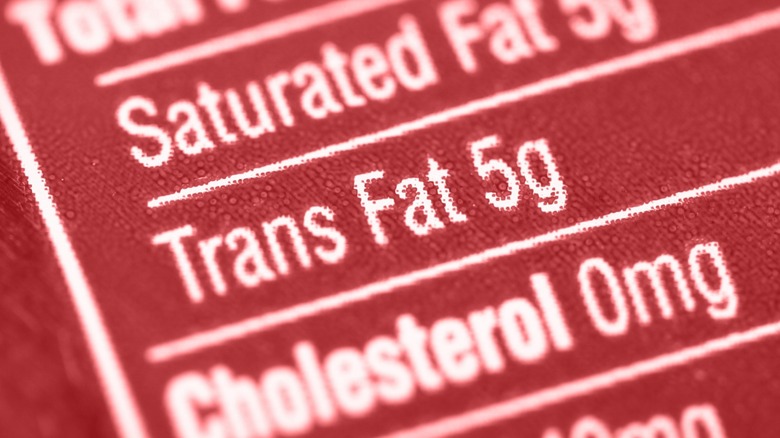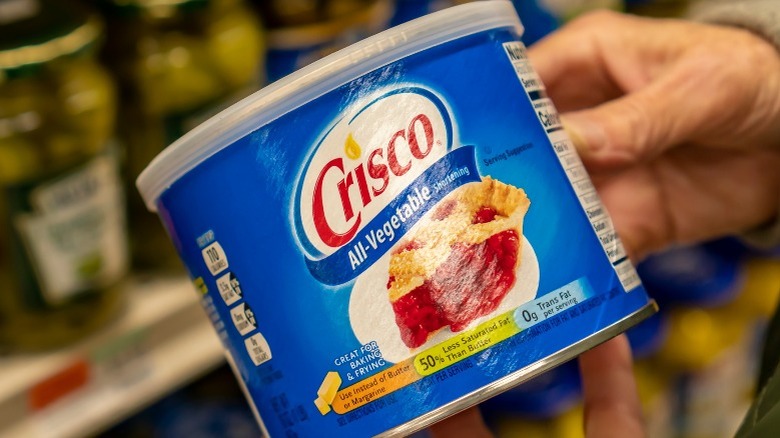When You Eat Too Much Trans Fat, This Is What Happens To You
To many people, "fats" is a four-letter word, and any food containing fat should be avoided at all costs. However, certain fats are not only good for you, they are a crucial part of a healthy diet. These good fats are part of a group called unsaturated fats that include monounsaturated fats and polyunsaturated fats. Some examples of foods that are high in these important fats include olive oil and sunflower oil, as well as nuts, seeds, and fish (via Harvard School of Public Health).
On the other end of the fats spectrum are trans fats, also known as partially hydrogenated oil. Trans fats give good fats a bad rap. There is absolutely nothing good about trans fats. Trans fats increase the bad cholesterol that can build up in your arteries and can decrease the good kind of cholesterol that transports excess cholesterol back to the liver, putting you at greater risk for heart disease (via Mayo Clinic).
So, if trans fats are so bad, why have they been in our food? Because trans fats become solid at room temperature, manufacturers have added them to certain foods to extend their shelf life. However, trans fats have been deemed so dangerous to your health, in 2018, the U.S. Food and Drug Administration (FDA) banned manufacturers from including artificially processed trans fats in foods (via Mayo Clinic).
Warning: These foods may contain trans fats
Despite the ban, the experts at Healthline warn that there can be traces of trans fats in some foods as a result of the manufacturer's preparation methods. There is also a chance that foods containing trans fats that were produced and distributed prior to the 2018 ban may be stored in your cupboard.
For example, before adding that vegetable shortening that you've had tucked away in your kitchen cabinet to your next flaky pastry recipe, be sure to check the label. It should contain fully hydrogenated oil and not partially hydrogenated oil. And if you still have microwave popcorn that's dated prior to the ban going into effect, it could also contain trans fats. All microwavable popcorn manufactured after the ban should contain trans fat-free oil.
Also, some vegetable oils you have around may contain trans fats. If you want to be sure you are using healthy oil in your cooking, go for olive oil instead. And while trans fats should now be less prevalent in fast food, assume that fried fast foods such as french fries, doughnuts, and fried fish will be more likely to contain trans fats, so limit these whenever possible (via Verywell Health).
While artificially produced trans fats should now be rare, there's still a chance they may be present, especially in unhealthier types of food. Swapping out processed and fried foods in your diet in favor of healthier options will help you avoid trans fats and support a healthier heart.

